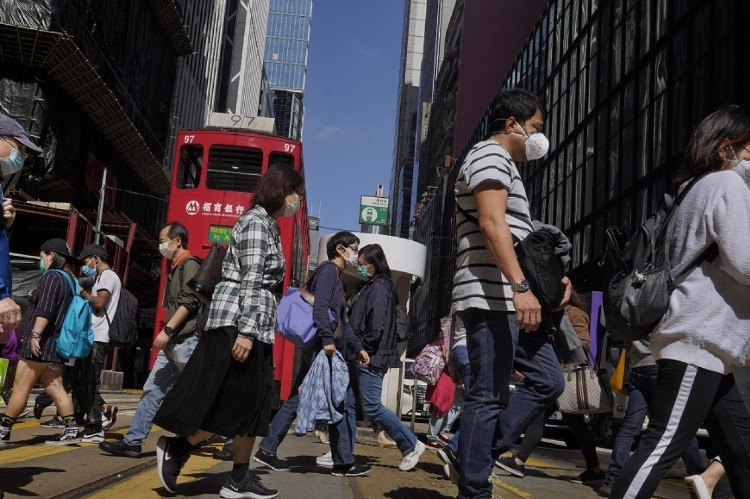Tackling the Trend Towards Parochialism
Reversing Hong Kong’s current drift towards parochialism needs to be part of a strategic effort. It is good to see that one of the roles of the newly established Chief Executive’s Policy Unit is to assess public opinions and build an external policy research capacity through government funding.
A good place to start would be the active nurturing of new platforms for discussion within Hong Kong’s top academic institutions. Existing platforms for intellectual discourse, such as the Asia Global Institute, could also benefit from elevated prominence. More public spaces for creativity and critical thinking can be created as well. Public art and music should see active encouragement, so that it can organically permeate and meld into the cityscape and exist outside the physical confines of an indoor space – as impressive as some of Hong Kong’s new museums may be.
The government can also spearhead efforts to directly engage with this creeping parochialism, by hosting more discussion panels and round tables that allow top intellectuals in Hong Kong to engage with the wider international community. Hong Kong must resist the feeling of comfort that comes with hosting yet another finance forum and more exhibitions and instead also expand intellectual discourse in critical areas where Hong Kong’s established bodies may not be suited to engage in. When done constructively, challenge and criticism is an invaluable asset, not an obstacle, to effective governance.
The private sector can also play an invaluable role in creating these spaces. Corporations can provide funding for the creation of new academic chairs, especially so that promising interdisciplinary programs such as HKU’s recent Bachelor of Arts and Sciences can receive the support they deserve. To assuage parent concerns about career opportunities, internships that draw exclusively from interdisciplinary degrees can also be created.
Private individuals, who have traditionally chosen to donate their money to foreign nonprofits and public institutions, can now begin to do the same in Hong Kong. Corporates can also continue recruiting from top international universities but can now also draw from top universities that reside outside of the Western-dominated global top 100. While many businesses may be worried about disrupting the status quo, this serves not as a danger to be shied away from, but a prime opportunity that should be embraced. Currently, businesses have the once in a lifetime opportunity to shape the future trajectory of Hong Kong and they should be jumping at the opportunity to do so.
Another group that can greatly aid Hong Kong in its fight against parochialism is the vibrant community of permanent residents in Hong Kong. Many may have left Hong Kong, but even more have stayed. These are the people that truly love Hong Kong and do so just as much as those born and raised here – that is why they stayed, despite the incessant stream of negative narratives regarding Hong Kong they likely hear from international media and their friends and family abroad. Just as importantly, these people understand the nuances of Hong Kong. They understand the diversity of stakeholders Hong Kong needs to negotiate with in order to be successful. They understand what it is and what it isn’t, what it is on track to becoming and what it can become. This is a community of people that are well placed to share the good stories about Hong Kong with the international community, while informing and taking ownership of Hong Kong’s future direction. Moving forward, this is a community that the government must absolutely increase engagement with.
When done properly, the fight against parochialism shouldn’t serve as a mere rebrand of Hong Kong, it should be one that changes Hong Kong beyond what it was before its period of tumult.
Addressing parochialism could also be the missing piece for solving the trust issue that the Hong Kong establishment has become so fixated on. The problem isn’t so much that limitations exist within Hong Kong’s systems, it’s that people feel unable to understand and engage with them on their own terms. Only when people feel like they can of their own volition challenge HK’s systems, push it to its limits, question them, and engage with it will they start to believe in Hong Kong, and truly understand, that Hong Kong is back and here to stay.
The Financial Secretary is correct – for all intents and purposes, Hong Kong is back for business. However, it also needs to be sensitive and responsive towards the flow of global affairs and a rapidly shifting geopolitical climate. To truly be “back for business”, it cannot revert to what it was before, and only be a city for business. After all the business of government is not simply about the interests of the business community, it is about the business of the welfare of the entire community. It needs to admit that this singular focus was detrimental over time, giving way for systemic inequalities to fester and disenfranchising a large segment of the population. Through expanding its intellectual offerings, it can set the stage for thinking big and on the scale necessary for success under the new global paradigm. Only then can it meaningfully reengage the international community and retain its status as Asia’s World City.


























